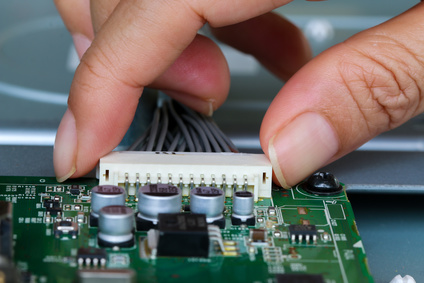10 Things To Look For in a PCB Assembly Company
January 6, 2011

Having been in business for over 25 years, ESI has introduced its services to countless companies. There were 10 areas in which all companies consistently focused on when it came to PCB assembly company selection. Here they are:
1. Proximity – Most companies who are starting a new project with a new company want a contract manufacturing firm that is close enough to drive to. This is important for site surveys and material shortages. You want to have the ability to react quickly and regional companies provide you with a little more agility when time is a factor.
2. Type and Age of Equipment – Contract manufacturers sell time. You want a company that has the ability to run a job using technology, when possible. Pick-and-place machines, reflow ovens and wave soldering equipment are just a few staples. If the company has them are they well maintained? Do they make capital equipment investments? Is the technology old or outdated?

3. Certification of Operators – Request information about the PCB Assembly operators at the company. Are they certified in the latest standards that are mandated by your company and/or product? If not, how far away are they from attaining the proper credentials? Are they willing to complete the needed requirements?
4. Quality Standards – ISO 9001:2008 should be the minimum standard that a company has established for its business. Various industries require that their companies and/or subcontractors have the same. Is the contract manufacturer certified in all of the necessary standards? If the company is willing to obtain the proper standard for your company, are you willing to invest a minimum amount of business with that manufacturer?
5. Delivery – Is the company able to turn a job at your specified quantity in a reasonable amount of time? Is the job too big for them to handle? Do they ship off-shore for large jobs? Are all of the parts in stock or readily available?
6. ESD Controls – With today’s ICs, it’s very important to protect your products. Electrostatic discharge (ESD) in contract manufacturing is an important topic that we have discussed in the past.

7. In-house Purchasing/TurnKey – Does the manufacturer have a purchasing department that can source your materials? Do they have partnerships with vendors that cause the price to be driven down? Do they have the knowledge to locate and obtain possible substitutions in the case of obsolescence? Are they capable of turning your drawings into fruition with little to no involvement from your company?
8. Price – Is the company’s labor rate commensurate with the industry? What is included in the price? Are they a lot higher/lower than other companies? Make sure that you have an apples to apples comparison as the bottom line price may not include some integral pieces.
9. Training – Does the company value continuing education when it comes to it’s staff? Are their skills monitored and measured? Are trainers brought in to enhance the staff’s skill set? How often is this done?
10. Age of the Business – We were once a start up and it was tough to get an opportunity, but after 25 years of experience in this area of business, we now have a body of work and a reputation that speaks for itself. There aren’t many scenarios that we haven’t seen or solved. Ask the potential manufacturing partner questions such as: what was the longest running contract that they have had? Which client have they had the longest? What was the most complicated project issue that they have faced while in business?
These questions will put you on the road to selecting a quality PC Board Assembly house. Are there any others that you can think of?
